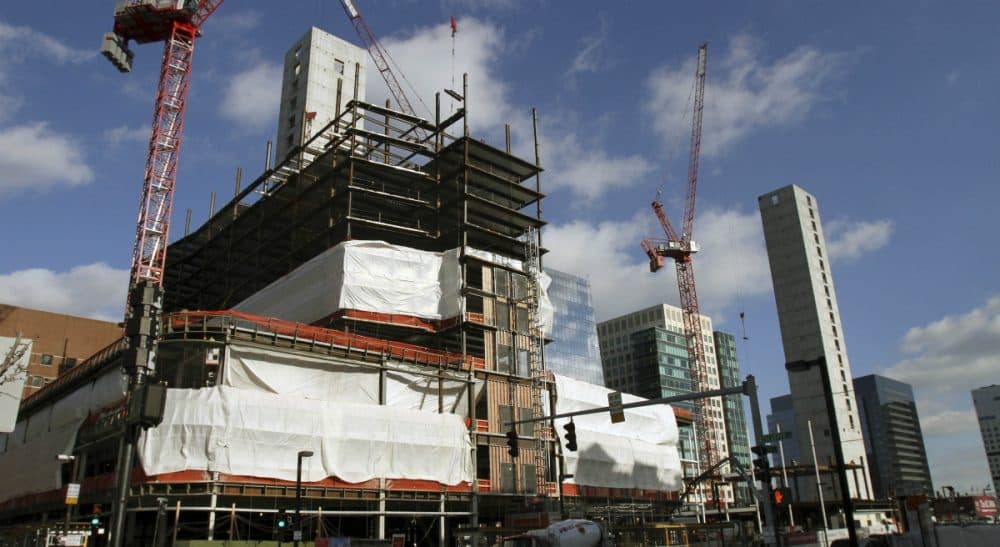Advertisement
GE And The Rise — And Perils — Of Too Big To Tax

I don't mean to rain on Gov. Charlie Baker and Mayor Marty Walsh's parade. I was trying to be happy about the news that General Electric will be coming to Boston. It's undeniably a big deal — certainly a boost in self-esteem to our city.
But it also represents how rigged the economy is in favor of big companies. It's another step down a road we need to find a way off of.
It comes down to this question: Why should GE be allowed to play by a different set of rules than every other business in Massachusetts?
Just what did we give up to lure GE? The unofficial tally is $145 million in tax breaks and other incentives.
When the GE news hit, many cheered. One Boston Globe columnist wrote that the deal is "better than hosting the Olympics." Baker and Walsh quickly did a media victory lap — with Mayor Walsh saying, "we won Powerball." But before long, a note a dissonance began to grow.
Just what did we give up to lure GE?
The unofficial tally is $145 million in tax breaks and other incentives. Some of these are spread out over decades, but still it represents $187,000 per GE employee. When pressed on the tax package, Gov. Baker was quick to point out increased payroll taxes from their employees make up a portion of the outlay, and GE's presence will (he assumes) bring other businesses.
Those other business will pay taxes, you see. If they compete with GE, they will have to do so while paying taxes GE doesn't pay.
And that's just state and local taxes. GE also uses its size to aggressively dodge federal taxes on its profits — in fact, between 2008 and 2013, GE paid a tax rate of negative 9 percent, earning $2.9 billion from the tax code on top of $33 billion in profit. That $2.9 billion didn't come out of a hat, it came from the taxes the rest of us pay.
Mayor Walsh defended the tax package offered to GE by saying, "The reason why tax incentives are there is to attract and lure companies into your region."
What Walsh is implying here is that it is the express purpose of business tax incentives to create deals to court specific businesses. I have a fundamental disagreement with that notion. I think the tax code should make everyone play by the same rules. If you want to make the tax code more attractive to business, it should apply to all the local businesses, not just the glitzy ones.
It used to be that local government lured business by doing a set of programs that also just happened to help everyone. They improved education, they improved transportation, they added parks and police officers. Now, in order to lure business, you have to take away from parks, schools, roads and police. Now, in order to lure business, politicians just fork over cash.
Advertisement
It did not escape my notice that another announcement resounded around Boston last week: a $50 million shortfall for school funding.
Whether or not it is "worth it" to fork over tax breaks to land GE is beside the point. The question is: What kind of economy are we building?
...another announcement resounded around Boston last week: a $50 million shortfall for school funding.
Do we really want an economy where the biggest businesses use their size to negotiate individualized tax deals so they move in, or don't move out? In that system, who pays for our schools, our public transportation, our parks? On top of too big to fail, we'll end up with too big to tax.
Unfortunately, once one city or state is willing to offer up tax incentives to bring in companies, it puts a lot of pressure on other municipalities to follow suit to compete. It's a race to the bottom. We can't blame our local officials for that system, but we can't pretend as if they have no role to play, either.
I want Boston to thrive. I want businesses to move here, start here, innovate here. But I just don't see why we should tolerate a tax system where the biggest companies get personalized tax rules.
